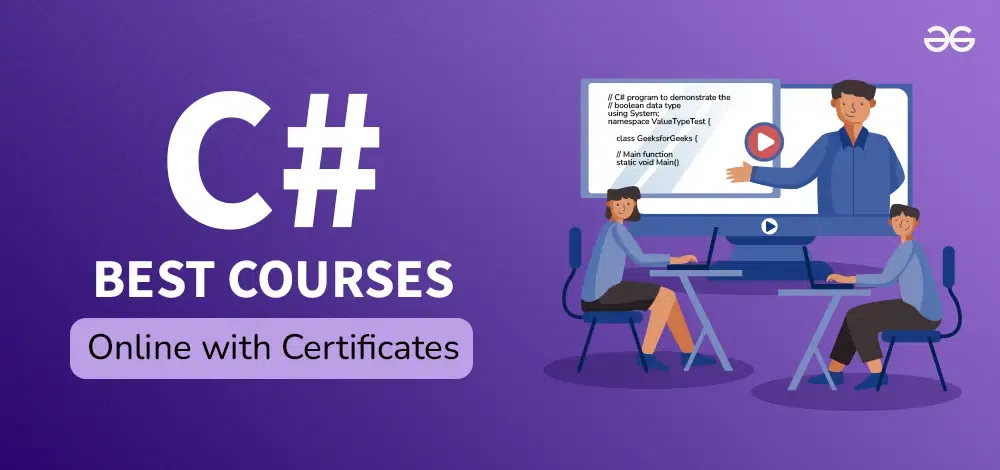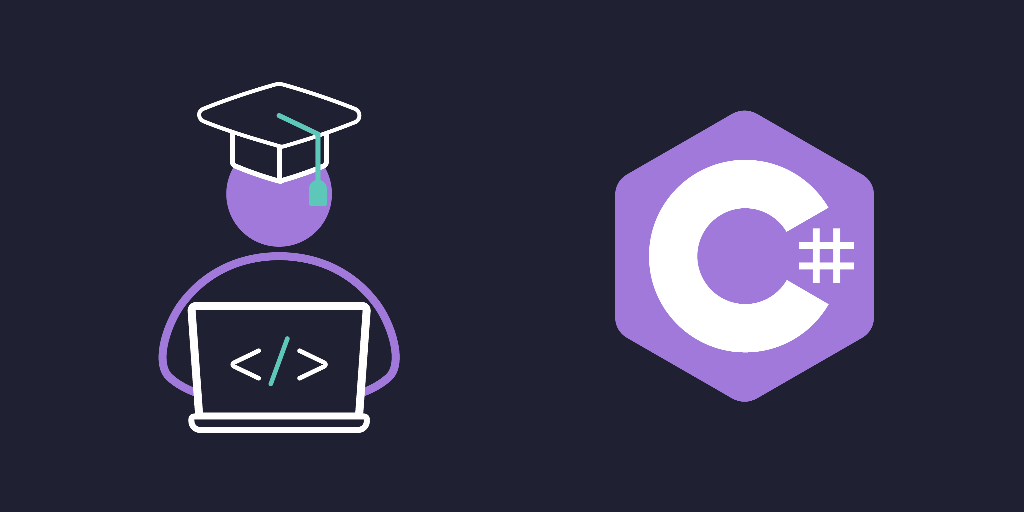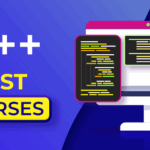The Crossroads: Why C#?
I remember a time, not too long ago, when the word "coding" conjured images of super-geniuses in dimly lit rooms, surrounded by glowing monitors and lines of cryptic text. I felt completely out of my depth. But I also felt a growing desire to create. I wanted to build things, solve problems, and understand the magic behind the apps and games I used every day.
So, I started digging. I asked friends who were already in tech, scoured online forums, and read countless articles. One name kept popping up again and again: C#. People talked about its versatility, its strong community, and how it was a fantastic starting point for beginners, yet powerful enough for massive, enterprise-level applications.
- "You can build web apps with ASP.NET Core!" one friend exclaimed.
- "It’s great for desktop applications," another chimed in.
- "And if you ever want to make games, Unity uses C#!" That last one really caught my attention. Games? Me? That sounded like a dream.
The more I learned, the more C# seemed like the perfect language to dip my toes into the vast ocean of software development. It wasn’t just a language; it was a gateway.
The Search for My First C# Course
Deciding on C# was one thing; finding a way to learn it was another. The internet is a huge place, filled with free tutorials, paid bootcamps, and everything in between. It felt a bit like being in a giant candy store, not knowing which sweet to pick.
I knew I needed structure. Just aimlessly watching YouTube videos wasn’t going to cut it for someone like me, who needed a clear path and explanations that didn’t assume I already knew what an "abstract class" was (spoiler: I didn’t!). I looked for a C# course for beginners that offered:
- Clear, step-by-step lessons: Something that built knowledge piece by piece.
- Hands-on exercises: I learn by doing, not just by listening.
- A good instructor: Someone who could explain complex ideas in simple terms, without making me feel silly for not understanding immediately.
- A supportive community (if possible): A place to ask questions when I inevitably got stuck.
After a fair bit of research, comparing reviews, and even trying out a few free introductory modules, I finally settled on an online C# course that seemed to tick all the boxes. It promised to take me from zero to a solid foundation in C#. I took a deep breath, hit the enroll button, and my adventure truly began.
The First Steps: Decoding the Basics of C
The initial days of the course were a mix of excitement and feeling completely overwhelmed. My instructor, bless their patient soul, started right from the very beginning.
We learned about variables – essentially, little storage containers for information. Think of them like labeled boxes: one box for numbers, another for text, another for true/false statements.
Then came data types, which told C# what kind of information each variable box could hold. It sounds basic, but understanding why you declare an int for a whole number versus a string for text was crucial.
We moved on to conditional statements (the "if this, then that" logic) and loops (how to repeat actions). I remember the thrill of writing my first for loop that printed numbers 1 to 10. It felt like a tiny act of magic!
The course also walked me through setting up Visual Studio, which is the main tool C# developers use. It looked daunting at first, but with guidance, it quickly became my digital workbench, my creative hub. Seeing my code compile and run, even if it was just a simple "Hello, World!" message in a console window, gave me a massive rush.
The "Aha!" Moment: Embracing Object-Oriented Programming (OOP)
One of the biggest hurdles, and eventually one of the most rewarding parts of the C# programming course, was grasping Object-Oriented Programming, or OOP. This is a fundamental concept in C# (and many other languages).
Initially, it felt abstract. Classes? Objects? Inheritance? Polymorphism? My brain was doing backflips. But the course used excellent analogies and practical examples.
- Imagine a "Blueprint" for a car (that’s a class).
- Then, each specific car built from that blueprint (your car, my car, a friend’s car) is an object.
- We learned how to define what a car has (color, model, year) and what it can do (start, stop, accelerate).
The moment OOP clicked for me, it was like a lightbulb went off. Suddenly, the code started to make more sense. It wasn’t just a list of instructions; it was a way to model the real world in a structured, organized way. This part of the learn C# journey was challenging but incredibly rewarding. It’s what makes C# so powerful for building complex systems.
Building Things: From Console Apps to Simple Games
The best part of the C# tutorial wasn’t just learning theory; it was applying it. We built small projects throughout the course:
- A simple calculator.
- A "Guess the Number" game in the console.
- A basic inventory system for a fictional shop.
Each project reinforced what I had learned and pushed me to think critically. Debugging became my frenemy – frustrating when I couldn’t find the bug, but incredibly satisfying when I finally squashed it. These hands-on exercises were absolutely crucial for solidifying my understanding of C# fundamentals.
Towards the end, the course even touched upon integrating with databases and creating simple graphical user interfaces (GUIs). It opened my eyes to the sheer breadth of what was possible with C#. The dream of building games suddenly felt a little closer when I saw how Unity leveraged C#.
Bumps in the Road and How I Overcame Them
Let’s be real: learning to code isn’t always smooth sailing. There were days I stared at my screen, completely bewildered, wondering if I was cut out for this. Errors popped up, code didn’t run, and sometimes, my brain just felt full.
But the course, and the little community around it, provided immense support. I learned the value of:
- Taking breaks: Sometimes stepping away for an hour (or a day!) and coming back with fresh eyes was all I needed.
- Googling effectively: Learning how to search for solutions to specific error messages is a skill in itself.
- Asking for help: There’s no shame in admitting you don’t know something.
- Persistence: The biggest lesson of all. Every bug fixed, every concept understood, was a tiny victory.
My Advice to You, The Aspiring C# Developer
If my story has sparked even a flicker of interest in you, and you’re thinking about taking a C# course, here’s what I’d tell my past self, and what I want to share with you:
- Don’t Rush It: Learning to code is a marathon, not a sprint. Take your time to truly understand each concept before moving on. Repetition is your friend.
- Embrace the Errors: Errors aren’t failures; they’re opportunities to learn. Get comfortable with debugging. It’s a core part of a developer’s life.
- Build, Build, Build: Theory is great, but practical application is where the magic happens. Start with small C# projects and gradually increase complexity. Even tiny programs help solidify your knowledge.
- Find a Good Course: A well-structured C# course with a patient instructor and hands-on exercises makes all the difference, especially for beginners. Don’t just pick the cheapest or the most expensive; pick one that resonates with your learning style.
- Connect with Others: Join online forums, Discord channels, or local meetups. A supportive community can provide answers, motivation, and a sense of belonging.
- Stay Curious: The world of C# and .NET is always evolving. Keep learning, explore new frameworks like ASP.NET Core, or dive deeper into game development with Unity.
The Payoff: Why My C# Course Was Worth Every Minute
Today, I’m no longer the lost beginner I once was. Thanks to that initial C# course, I now confidently build small applications, understand the logic behind complex systems, and even dabble in game development for fun. It wasn’t just about learning a language; it was about learning a new way to think, to problem-solve, and to create.
The skills I gained from learning C# opened doors I never imagined. Whether you’re aiming for a career in software development, want to automate tasks, or simply satisfy a creative urge, learning C# is an incredibly valuable step.
So, if you’re on the fence, wondering if a C# course is right for you, my answer is a resounding yes. Take that leap. It might just be the start of your own incredible adventure, a journey where you transform from a curious observer into a confident creator. What are you waiting for? Your code is ready to be written!



